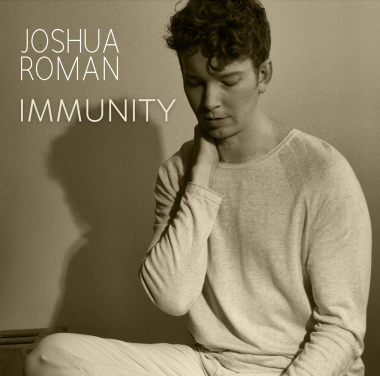
There are typically a few different draws for an orchestral concert: the soloist, the composers whose works are programmed, the home team of musicians itself.
All those will certainly be in play when cellist Joshua Roman performs music from J.S. Bach to Caroline Shaw on Feb. 12 at Stanford’s Bing Concert Hall, joined by the Stanford Medicine Orchestra for the evening’s second half. But the focus of “Immunity,” the solo program he’ll present first, is as much musical as it is narrative and instructional, relating how music has helped him navigate his recovery from long COVID.

Roman was first infected with COVID-19 in January 2021 — just prior to vaccines being available for seniors, essential workers, and other vulnerable members of the community. He’s since had the disease three more times. “I’m very careful. I’m often the only masked person in situations,” he said in a phone interview from his New York City home. “But somehow my body just keeps getting hit.”
Asked about his current health, he replied, “It’s hard to quantify these things, but I’ve been saying I’ve been feeling 15 percent better, which is nowhere near normal. I can’t jog or anything, but I can walk up the subway stairs without stopping most of the time.”
“Immunity” has evolved along with Roman. “It’s a mix of storytelling and performing,” the Oklahoma native said. “The seed [for the project] was a Princeton University concert. They started a new series called Healing With Music, which featured guests like Fred Hersch and Jon Batiste and his wife [Suleika Jaouad].
“[Princeton] asked me to play music that was important to me on my health journey and to talk about my health onstage,” Roman continued. “Instead of telling the whole story, they filmed a seven-minute documentary to start the concert.” Roman spoke briefly between numbers and participated in a moderated conversation afterward. “But now the format is more mixed, even when we do the video.”
The repertoire for “Immunity” has varied slightly over time, the project culminating in an album that was released last October. One standard piece has been the Prelude from Bach’s Cello Suite No. 1 in G Major. “That was the piece of music that I played when I picked up the cello after almost three months of not playing it, which is the longest I’ve ever gone. I literally had to dust the case off,” Roman revealed.
That soothing, familiar composition is the single piece he’s played most in his life, Roman reckons. “Playing it that time felt different than it ever had. I was really, really moved by the music in a way that surprised and overwhelmed me,” he reflected. “In many ways, it’s the beginning of this whole project.”
Stolen by flutist and contemporary composer Allison Loggins-Hull conjures a decidedly different tone. “That piece is really serious and dark,” Roman said. “It’s about women sold as brides when they’re children. It’s very important to me to honor music that has a message like that.” Stolen was also the last piece that Roman learned before he first became ill. Short-term memory loss is a symptom of long COVID, he said, so being able to revisit Stolen is a personal triumph as well.
Other composers featured in “Immunity” include George Crumb, Krzysztof Penderecki, Caroline Shaw, and Roman himself. “There is a narrative arc that is based on my story,” the cellist explained. “But I also really do love how [the program] fits together and is a sonic journey through the cello and all of these different styles and facets.”

At Stanford, Roman will for the first time pair the largely solo “Immunity” with an orchestral piece: Camille Saint-Saëns’ Cello Concerto No. 1. The performance has a double significance for him. The Saint-Saëns was the first concerto he performed after his initial COVID diagnosis. And then there’s playing with the Stanford Medicine Orchestra, a group of healers who can speak to the theme of the concert.
The performance is scheduled to cap Roman’s eight-day residency on campus, which was amended by a day so that he could check out his new friend Renée Fleming’s “Music and Mind” panel on Feb. 8. Roman will also work with students, give a concert for Stanford Hospital patients and staff, and further explore and champion his mission for music and health advocacy.
“Joshua wants to be an agent for us to all discover what is happening with arts and wellness,” said Laura Evans, Stanford Live’s director of programming and engagement. “It’s great to feel like there are overlapping circles of good work happening.”




